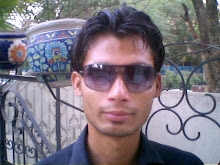SOFIA: In the yard of the Bulgarian presidential residence, in the foothills of Vitosha Mountain, Ashraf al-Hazouz took two hours to recount his years of captivity in Libya, torture and his need to air his grievance. Hazouz is one of seven medical workers arrested in 1999 on charges of infecting hundreds of Libyan children with HIV, the virus that causes AIDS.
Hazouz is becoming the most public face of the workers - six nurses and Hazouz - who were freed last week and were promptly pardoned when they arrived in Bulgaria, where all except Hazouz came from.
Their joy at their freedom seems to be turning into a hunger for justice after more than eight years of captivity, which began with months of torture.
"I was preparing to be a surgeon, so I believe that if I have an abscess, I must open it and clean it to heal the wound," said Hazouz, 37, an Egyptian-born Palestinian, who moved to Libya at the age of 2. "My wounds are still bleeding."
The medics submitted sworn statements to the Bulgarian Foreign Ministry in 2003, as part of criminal proceedings Libyan prosecutors brought against nine Libyan officials accused of torturing them to extract confessions. The officials were acquitted. Some later countersued for slander, litigation that was still unresolved when the medics were freed last week, after years of international efforts.
"I have no doubts that they were all were tortured," said a European diplomat, one of the first to visit the medical workers, in 2003, who spoke on condition of anonymity.
"For me, they were credible, knowing also the situation in Libya," the diplomat said. "From the surroundings, I could gather how it was going when we were not there."
The diplomat said that two of the nurses were visibly "borderline crazy." He said of one of them: "You could tell she was traumatized."
The soft-spoken Hazouz spoke in heavily accented English, sprinkled with colloquial Bulgarian expressions he learned in the years with his fellow prisoners.
In 1998, early in his training to become a doctor in Benghazi, the Libyan city was a bastion of government opposition, he said. Bombings by Islamic militants and gun battles with the police were common. The casualties of political violence filled the hospitals.
The emergency medical care system was under enormous stress, he said. "We were doing surgery without gloves" because there were not any, he said. "Doctors were vulnerable to infections," he said, and 40 percent of the doctors in Benghazi were infected with hepatitis B.
Hazouz said he received his first visit from the police on Dec. 13, 1998, while he was an intern in a hospital's gynecological unit. The police said they wanted him to come by the police station to give "some information," he said. When he went the next day, he said, he was asked why he was so affectionate toward the children at a hospital where he used to work.
"What do you want me to do, twist their necks?" he said he answered.
He knew of rumors circulating of an HIV epidemic at his hospital, he said.
He was held in the police station for three days in a cell with criminals until the results - negative - returned from his own HIV test. "I was angry and furious," he said. "At that time, I still thought it was possible that they were looking for the truth."
Hazouz was given permission to visit his family south of Tripoli for Ramadan. When he returned to the university, he had two months left in his internship before becoming the first doctor in his family. He was newly engaged.
Then he received another note asking him to go back to the police station.
"On Jan. 29, 1999, I completely vanished for 10 months," he said. He was handcuffed, put under a black hood and taken into a car, he said. At some point he was put in the trunk and driven to Tripoli, where he was put in a cell.
Meeting General Harb Amer Derbal, chief of the national criminal investigation police, Hazouz said he began to realize that "I was not involved in a criminal case, but a political game."
He was then transferred from the criminal investigative unit to the police dog unit, and there his real problems began, he said. For the first few days he was kept in a room with three dogs, which the police ordered to attack him, and they tried to extract a confession. He said he was also beaten by the guards.
With his knees bent against his chest, he said, the police tied his hands and feet together around his legs. They then placed the bar on a metal stand, and spun him around "like a roasted chicken," he said.
He said he was forced to sleep with his hands tied behind his back, hanging from a wall for months.
From this time on, Hazouz says most of his perceptions of time were blurred. He could recall that the torture usually lasted until the morning call to prayer came from a nearby mosque. One of the more common tortures was electrical shocks delivered through an old military phone, with eight batteries and a hand crank.
Hazouz said the torture ended before Nov. 20, 1999, when he met his family for the first time in 10 months. One week later, he said, he had his first meeting with a lawyer.
Thursday, August 2, 2007
Subscribe to:
Post Comments (Atom)


No comments:
Post a Comment